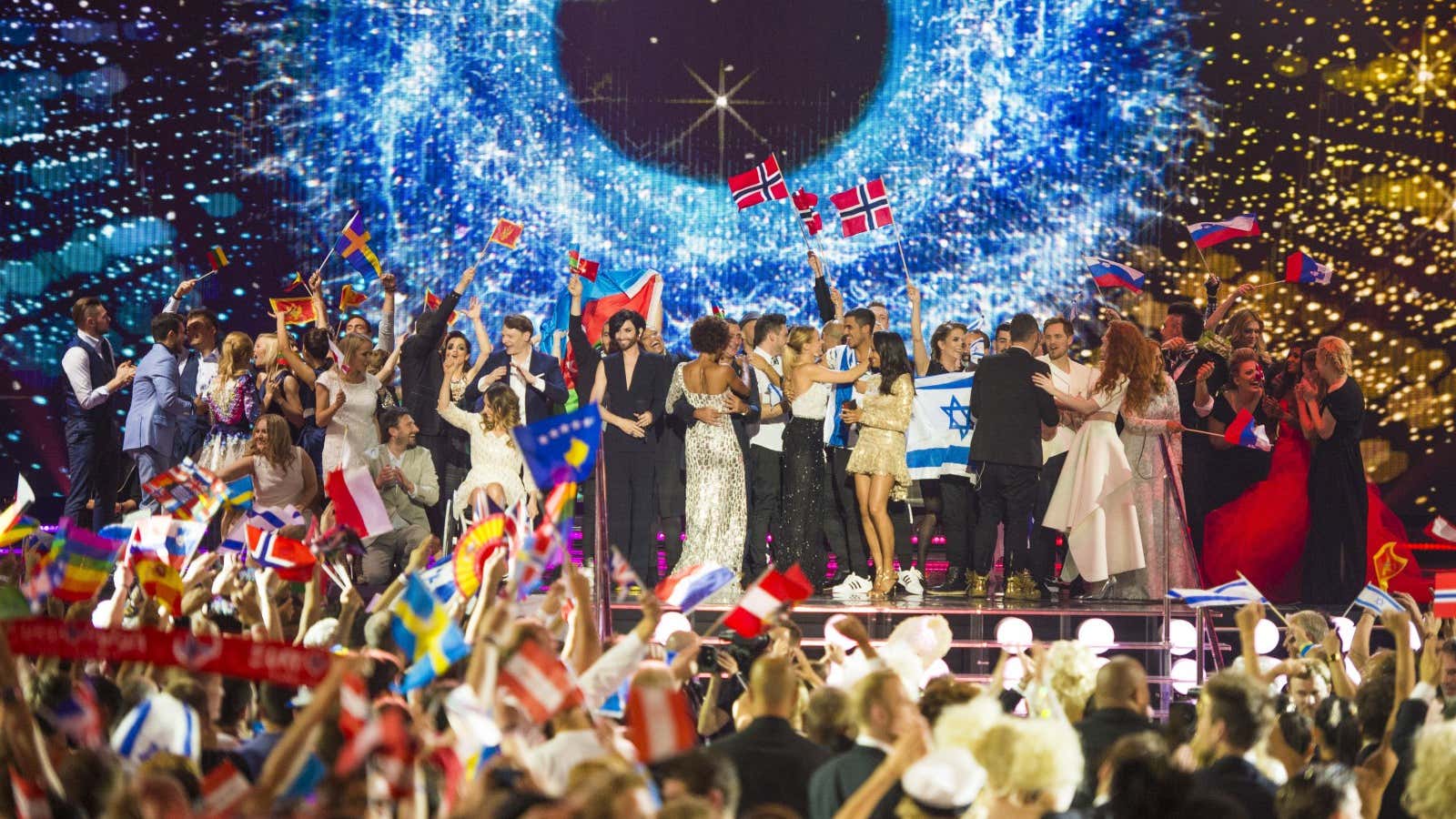The kitschy Eurovision Song Contest, loved by many and loathed by some, is in its 60th year. And this year Vatican State, Europe’s smallest country and the seat of the Catholic Church, will once again pass up the chance to participate, just as it has throughout the event’s history.
Vatican State’s smallness may contribute to its decision: It has less than a thousand inhabitants, many of them men of the cloth. Perhaps the nation hasn’t nurtured its citizens’ pop-ballad-belting skills to the level required by Eurovision.
Another may well be the church’s long history of condemning homosexuality, and continuing tensions with lesbian, gay, bisexual, and trans communities. (Even today, as Ireland votes on a referendum to legalize same-sex marriage, prominent Catholics have spearheaded the “no” campaign.)
Eurovision, famously friendly to the LGBT community, has become iconic around the world. The contest’s winner last year was Conchita Wurst, a cross-dressing performer who sang about transformation and rebirth:
Some may have had some hope of seeing a troupe of singing cardinals or nuns on the Eurovision stage this year, because the current Pope, Pope Francis, has struck a very different tone on LGBT issues. He has said for example: “If a person is gay and seeks God and has good will, who am I to judge?” Still, perhaps it’s unlikely that the new progressive attitude would extend to a joyfully camp song-and-dance contest.
The criteria for inclusion in the competition is membership of the European Broadcasting Union, and every year members are invited to submit an entry. Quartz has reached out to Radio Vaticana, the broadcaster that qualifies the state for entry, but has so far not received a response.
Other countries that qualify to enter Eurovision but have never done so include Egypt, Jordan, Algeria, Libya and Lebanon. Whether they do or not is their decision, said Jarmo Siim, communications coordinator for the contest.
But one new entrant is getting a lot of attention this year: Australia, a state that is not in the European Broadcasters’ Union or, indeed, anywhere near Europe. The one-off invitation was extended to Australia as a recognition of its enthusiasm for the contest, said Siim. Australia has been broadcasting Eurovision’s medley of extraordinary music, exuberant dancing, and creative fashion for three decades.




